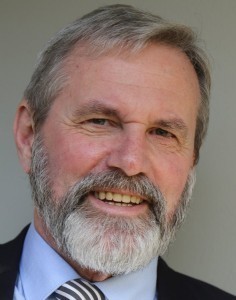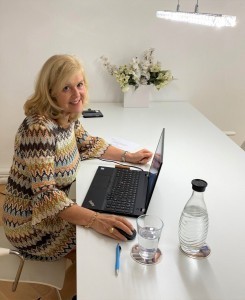"From practice - for practice" was the motto of the Association for the Surface Finishing of Aluminum e. V. (VOA) from November 3 to 5, 2020. The association welcomed almost 50 participants to its new online seminar on anodizing aluminium, including, for the first time, interested architects and façade builders. The VOA presented all anodizing process steps via video conference in five thematic blocks of two hours each. The focus was on defect and quality management. A total of eight competent speakers from VOA member companies allowed the participants to benefit from the wealth of experience gained in their daily work.
 Friedhelm U. Scholten, Deputy Chairman of the VOAThematerial aluminum can be used in many different ways due to its many positive properties, but it has to meet very different requirements: Corrosion resistance, wear resistance, gloss or color can be just as desirable as a matt surface structure, certain heat conduction properties, a defined reflective or electrical insulating capacity. The surface finishing of aluminum plays an important role with regard to all these properties that may be required. Anodizing or anodizing aluminium is one of the tried and tested processes here.
Friedhelm U. Scholten, Deputy Chairman of the VOAThematerial aluminum can be used in many different ways due to its many positive properties, but it has to meet very different requirements: Corrosion resistance, wear resistance, gloss or color can be just as desirable as a matt surface structure, certain heat conduction properties, a defined reflective or electrical insulating capacity. The surface finishing of aluminum plays an important role with regard to all these properties that may be required. Anodizing or anodizing aluminium is one of the tried and tested processes here.
The individual treatment steps of the anodizing process, possible errors and how to avoid them, as well as quality management and the associated documentation required were covered in detail in the VOA's digital anodizing seminar in order to produce high-quality surfaces for customers in the industry. For good reason, reference was repeatedly made to the globally valid QUALANOD quality mark, which can be acquired in four different areas - architecture, industry, decorative anodizing and hard anodizing - via the VOA as general licensee in Germany. It stands for compliance with international specifications of the general licensee. This includes a defined internal inspection and external inspection by independent, accredited testing institutes. "Outstanding quality and the best technology are the basic prerequisites for a company to survive on the international market," Friedhelm U. Scholten, Deputy Chairman of the VOA, is convinced. This makes it all the more important, he says, to repeatedly engage in extensive process analysis, as detailed knowledge of possible errors, their causes and effects is essential for optimum quality management. It is also helpful to provide tools for employees so that problems can be identified and rectified at an early stage and sources of error in the anodizing process can even be prevented.
 Dr. Alexa A. Becker during the anodizing seminarWithalmost 50 participants, this year's anodizing seminar was very popular. No wonder, as online events are gaining ground as a modern tool for internal and external corporate communication. The advantages are obvious: both time and financial resources can be optimized. The feedback from participants at the Eloxal seminar was very positive. 92 percent rated the practical relevance as very good to good. The scope of the topics and the process also received high approval ratings of 88% and 92% respectively. 63 percent prefer digital implementation, whereas 33 percent prefer to take part in a face-to-face event. When asked about the success criteria for the event, VOA Managing Director Dr. Alexa A. Becker: "With the online seminar, we succeeded in actively integrating the participants into the VOA network and creating the opportunity for mutual exchange through a good level of communication."
Dr. Alexa A. Becker during the anodizing seminarWithalmost 50 participants, this year's anodizing seminar was very popular. No wonder, as online events are gaining ground as a modern tool for internal and external corporate communication. The advantages are obvious: both time and financial resources can be optimized. The feedback from participants at the Eloxal seminar was very positive. 92 percent rated the practical relevance as very good to good. The scope of the topics and the process also received high approval ratings of 88% and 92% respectively. 63 percent prefer digital implementation, whereas 33 percent prefer to take part in a face-to-face event. When asked about the success criteria for the event, VOA Managing Director Dr. Alexa A. Becker: "With the online seminar, we succeeded in actively integrating the participants into the VOA network and creating the opportunity for mutual exchange through a good level of communication."
The VOA would like to thank the speakers Friedhelm U. Scholten (AnodiTec Hamburg GmbH & Co. KG), Dr. Martin Frank (Novelis Deutschland GmbH), Thomas Sondermann (Alufinish GmbH & Co. KG), Christian Befeld and Oliver Katschmareck (Chemetall GmbH), Frank Munk (Munk GmbH), Roman Peter (Omnya AG) and Matthias Krämer (VOA) for their excellent technical insight. "We are sure that the participants of the seminar have gained a lot of new knowledge over the last three days, which will be of great benefit to them in their daily work and with which they will be well equipped to meet all the challenges of anodizing," said Dr. Becker.


